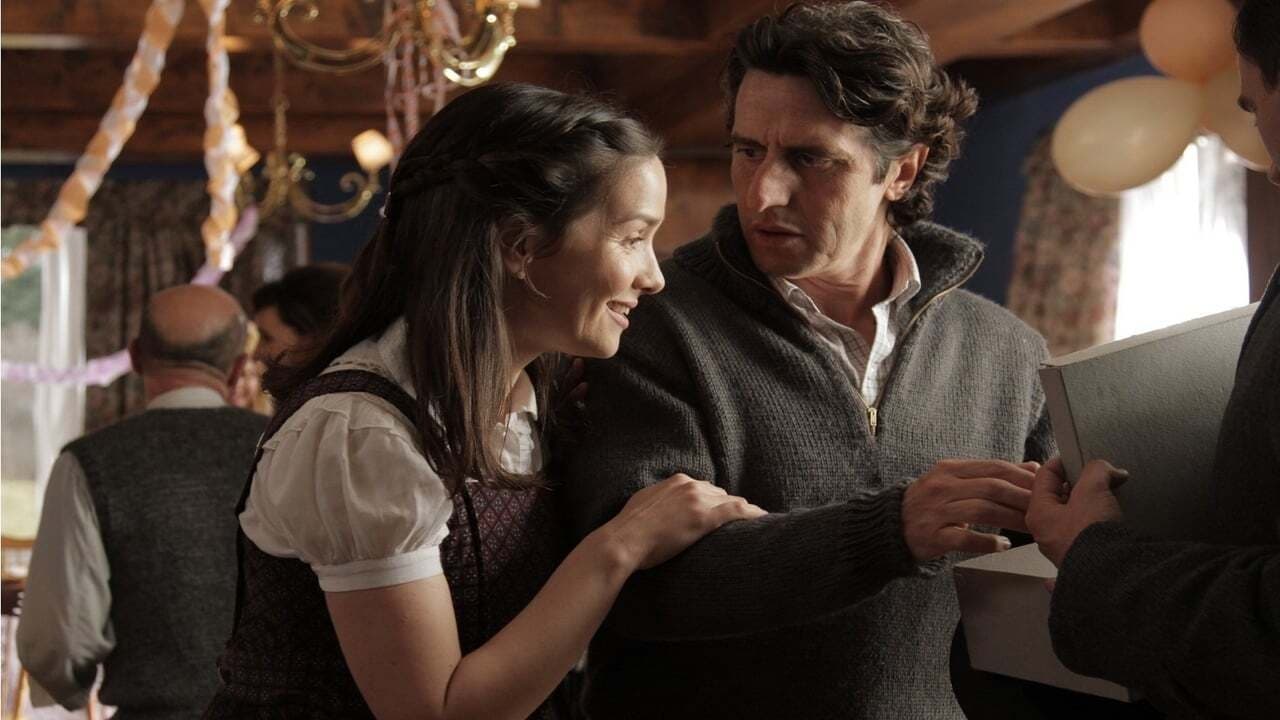

This is How Movies Should Be Made
... View Morenot as good as all the hype
... View MoreInstead, you get a movie that's enjoyable enough, but leaves you feeling like it could have been much, much more.
... View MoreStrong acting helps the film overcome an uncertain premise and create characters that hold our attention absolutely.
... View More'The German Doctor' is a quiet movie, but with a dark undertone, telling of the sojourn of escaped Nazi doctor Josef Mengele in southern Argentina (in fact, the plot is fiction, but also a surmisable version of the truth). What I liked about this film is that it inclines us to see Mengele as monstrously wrong-headed, but still in some senses still human, while a late revelation still shocks us by revealing the true awfulness of this man. Also, the Patagonian scenery is beautiful and the use of creepy mechanical dolls as a visual metaphor for how Mengele sees humans is also nicely done. But we know that Mengele got away in the end, and the film also tells us (by dint of a voice over, delivered with hindsight) that the girl we see him experiment with also survives. And thus there's just not so much dramatic tension, and the movie is rather slow to advance beyond its premise: most of the impact comes at the end.
... View MoreFilmed in the rolling landscapes of Patagonia, Argentina, WAKOLDA is a truly harrowing story of the Nazi doctor who continued to practice his experiments well after the Second World War had ended.In exile and among a group of Nazi sympathizers, Josef Mengele (Àlex Brendemühl) lives under an assumed name, and ingratiates himself with a family running a hotel. Befriending the young daughter Lilith (Florencia Bado) he claims to be able to increase her growth and thereby prevent her from being teased at school for being the smallest in the class. She readily agrees; as do her parents. This provides the pretext for Mengele to continue his macabre researches that actually do more harm than good.Lucía Puenzo's film contrasts the domestic world of Lilith with the world of the Nazi sympathizers congregating in a local German school. They still practice the salute, and forge a regimented atmosphere guaranteed to impose order on the unwilling learners. Lilith is sent to the school, in the hope of receiving a good education - although remaining largely unaffected by Nazi ideology, she is made painfully aware of her lack of height, which only encourages her to seek Mengele's help even more.Set in 1960, WAKOLDA draws a direct parallel between Mengele's work and the doll-manufacturing practiced by Lilith's father Enzo (Diego Peretti). At first Enzo makes all the toys himself; but with Mengele's investment the venture is transformed into a small cottage industry, where all the dolls' faces are identical and they are given tiny mechanized beating hearts. We are made painfully aware that Mengele treats humanity with just the same indifference as the factory workers treat their dolls - as material for experimentation rather than living breathing personae.The film maintains a cool, detached tone throughout; although Israeli agents pursue Mengele with the same enthusiasm as with other ex- Nazis (notably Adolf Eichmann), they fail to capture him. But this is not really the film's concern: director Puenzo is far more concerned with Mengele's terrible plausibility as a practicing doctor taking unwitting victims into his confidence and subsequently abusing them.
... View MoreHypnotic scenery matching the scale of the Sonnenmenschen legend. The protagonist's epic ascension to the heaven with South American Alps as a backdrop. A beautiful story in 4 languages, retelling myths of Bariloche. I watched the film several times - without subtitles, without sound, and in black and white. Every time it was a different story: it started as another Nazi'xlpoitation flick, almost like Odessa files, and turned into a road movie, coming of age saga, Patagonian Lolita, and Dr. Faustus noir fairytale.Lucia Puenzo, you are a magician.I admire your maddening style of quiet ambivalence. Like the fleeing smile of Nora The Photographer. It is unusual and nice that interpretations and the final judgment are left to spectators. Plenty of untapped potential. Just imagine if authors openly took sides... :)
... View More"The German Doctor" is Lucía Puenzo's take on what Nazi war criminal Josef Mengele (aka "The Angel of Death") might have been doing while he was on the run in Argentina in the early 60s. Puenzo has fashioned her story based on her own 2011 novel, "Wakolda." Since Mengele is revealed to be Puenzo's protagonist from the get go, the film offers little in terms of suspense. Nonetheless, "The German Doctor" is worthwhile in other respects and Puenzo manages to convey a believable tale despite its fictional underpinnings.Puenzo's framing device is a coming of age story focusing on 12 year old Lillith, who has arrived in 1960 with her Argentinian father, Enzo, German-speaking mother, Eva (descended from German immigrants who came to Argentina years before), and brothers Tomas and Polo, to the town of Bariloche, a German enclave in the Patagonian region of Argentina. Enzo and Eva are re-opening a family held inn and their first paying guest is Helmut Gregor, a creepy doctor who actually is Josef Mengele, responsible for ghastly crimes against humanity while he was head doctor at Auschwitz during World War II.Lillith, a victim of stunted physical development, is unmercifully mocked by fellow students at the German speaking school she attends. In steps Gregor who offers Eva assistance in helping to advance Lillith's maturation by administering growth hormone injections. As a descendant of ethnic Germans, Eva trusts Gregor instinctively and perhaps is symbolic of the Nazi sympathizers during the Third Reich, whom were seduced by promises of national victory via theories of racial superiority. In order to help her daughter, Eva is willing to betray her husband, who is dead set against the idea of hormone injections that, in his opinion, are against nature.Not only is Eva seduced, but later Gregor seduces Enzo, by offering to mass produce his special children's porcelain doll design. Enzo perhaps represents the "Good Germans" who were opposed to Nazi theories of racial superiority but were taken in by the quest for material advancement.Puenzo also does well in reminding us that individuals such as Mengele could not have thrived without the support of the community who gave comfort to him. Gregor aka Mengele received money from ex-Nazis and Nazi sympathizers which was passed on to him by members of the ethnic German community in Argentina. The violence underneath the surface is perhaps best illustrated by the brutal beating of one of the children at the German speaking school by a coterie of latter day descendants of the Hitler Youth.When Mengele was at Auschwitz, his obsession with twins, would often lead him to conduct barbaric experiments (such as surgically attaching twins together to observe their behavior). Here too he appears to be taking an unhealthy interest in Eva, who is now about to give birth to a set of twins herself. But when Enzo learns of Gregor's administration of hormone treatments on Lillith, he orders the bad doctor off the premises immediately.In a twist, Eva gives birth to twins who are premature and Enzo has no choice to allow Gregor to assist in helping the twins hours after their birth. Puenzo makes things uncomfortable for everyone by suggesting that evil (in the shape of monster Mengele) has a human face (Gregor), who can harbor ordinary benevolent feelings alongside the monstrous (Gregor's treatment involves prescribing different doses of milk for each infant).In the end, it hardly matters whether this Mengele is real or a fake. Puenzo's makes the good point that seemingly normal people, irrespective of a past positive ethical history, can be easily seduced by evil, when it suits their interests.
... View More